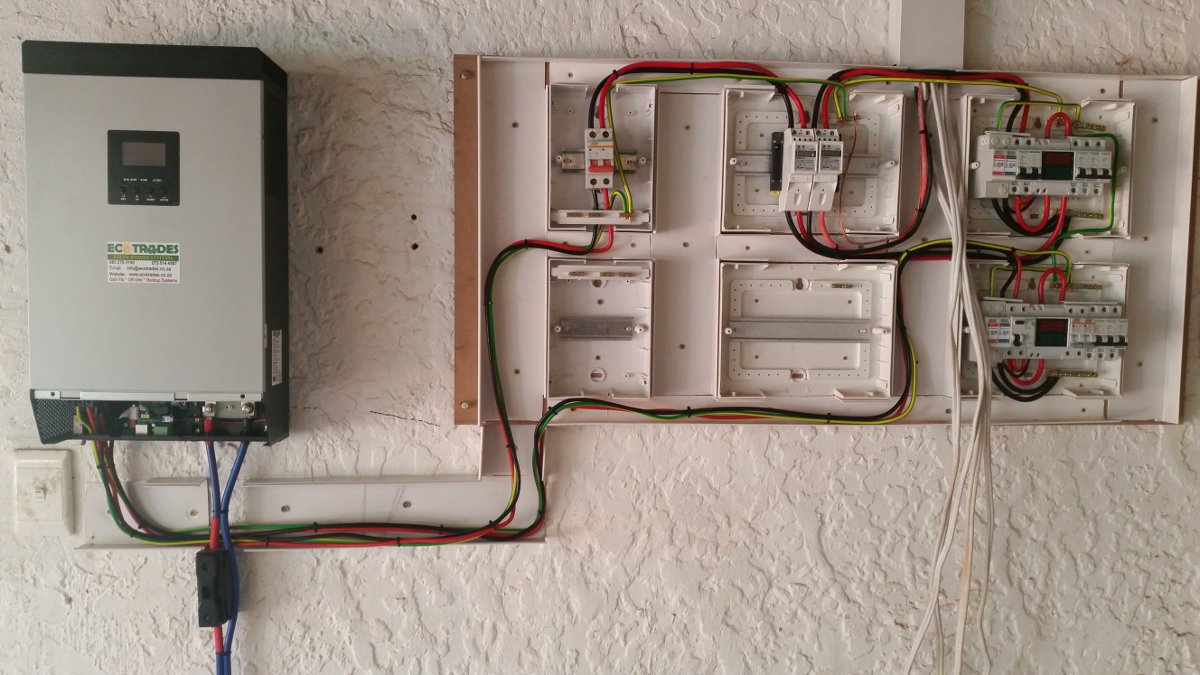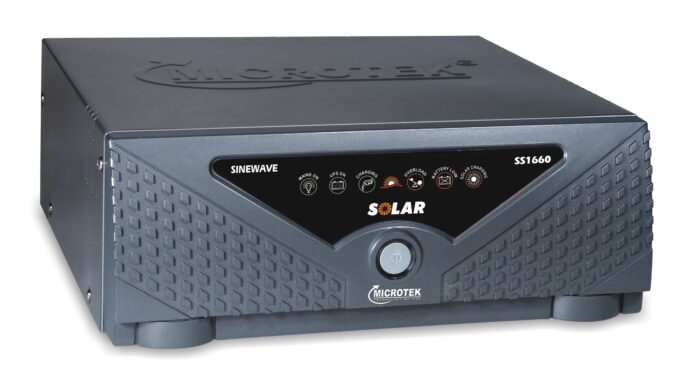Are you looking for a way to power your Inverter For Home, efficient energy? An inverter can be the perfect solution for transforming your home into a high-powered system. Inverters are devices that convert direct current (DC) electricity into alternating current (AC), allowing you to use a variety of appliances and devices in your home. This blog post will explain why investing in an inverter is a smart choice, and how you can find the best inverter for your home. Keep reading to learn more about the advantages of using an inverter and how it can help you save money and energy in the long run.
The Basics: What is an Inverter?
Before delving into the benefits of using an inverter in your home, it’s important to understand what an inverter actually is. At its core, an inverter is a device that converts DC (direct current) power to AC (alternating current) power. This allows you to use DC power from sources like batteries and solar panels to power AC appliances in your home.
The reason this conversion is necessary is because most of the appliances in our homes, such as lights, refrigerators, and TVs, require AC power to function. If you were to directly connect a battery or solar panel to one of these appliances, it wouldn’t work because the appliance needs AC power to run.
Inverters work by taking the DC power from your source, running it through a series of transistors, and outputting AC power that your appliances can use. Some inverters also include additional features like battery charging and voltage regulation.Now that you have a basic understanding of what an inverter is and how it works, let’s explore why you should consider using one in your home.
Types of Inverters
There are several types of inverters available on the market today, and each one is designed to cater to different power needs. Let’s take a look at some of the most popular types of inverters.
- Pure Sine Wave Inverter – This type of inverter is considered to be the best inverter for home use as it produces high-quality, pure sine wave power. It can be used to power all kinds of appliances, including those that are sensitive to power fluctuations.
- Modified Sine Wave Inverter – This type of inverter produces a modified sine wave output, which is a cheaper alternative to a pure sine wave inverter. However, it may not be suitable for some appliances and can produce a humming sound when used with audio equipment.
- Square Wave Inverter – This type of inverter produces a square wave output, which is not suitable for sensitive electronics such as laptops, computers, and audio equipment. It is primarily used to power basic appliances such as lights and fans.
- Grid-Tied Inverter – This type of inverter is used in solar panel installations to convert DC power into AC power that can be used to power appliances. It can also be used to feed excess power back into the grid.
- Stand-Alone Inverter – This type of inverter is not connected to the grid and is typically used in off-grid applications such as RVs, boats, and remote cabins.
Choosing the right type of inverter for your home will depend on your power needs and budget. If you’re not sure which type of inverter to choose, it’s always a good idea to consult a professional.
Why Use an Inverter in Your Home?
Are you tired of power outages disrupting your daily routine? Do you want to make the most of renewable energy sources, such as solar panels, to reduce your electricity bills? Then, an inverter for your home is the solution you’re looking for.
Inverters convert DC (direct current) electricity into AC (alternating current) electricity, which is used by most home appliances. Unlike conventional generators, which run on gasoline or diesel, inverters produce power using batteries or solar panels. Therefore, they are more reliable, environmentally-friendly, and cost-effective in the long run.
Here are some benefits of using an inverter in your home:
- Continuous Power Supply: With an inverter, you can ensure that your appliances have a constant power supply, even during power outages. This means you won’t have to worry about food spoilage, work interruptions, or medical equipment failures.
- Energy Savings: Inverters help you save on electricity bills by using renewable energy sources, such as solar power. By generating your own electricity, you can reduce your dependence on the grid and avoid paying peak-hour rates.
- Noise Reduction: Traditional generators can be noisy and disruptive to your peace and quiet. Inverters, on the other hand, are silent and unobtrusive. You can use them in any part of your home without disturbing your family or neighbors.
- Eco-Friendliness: By using renewable energy sources, such as solar power, inverters reduce your carbon footprint and contribute to a cleaner environment. They also don’t produce harmful emissions, such as carbon monoxide, that traditional generators do.
In summary, an inverter is a smart investment for any homeowner who wants to improve their quality of life, save money, and reduce their impact on the environment. Whether you’re planning to use solar panels or batteries, an inverter can help you transform your home into a high-powered system.
How to Choose the Best Inverter for Your Home
When it comes to selecting the right inverter for your home, there are a few key factors to consider. Here are some tips to help you make the right choice:
- Calculate Your Power Needs: Start by calculating how much power you need to run all the appliances and electronics in your home. This will give you an idea of the size of the inverter you require.
- Look for a High-Quality Inverter: The quality of the inverter you choose is critical, as it can affect the performance and durability of your appliances. Look for an inverter with a good reputation for quality and reliability.
Choose the Right Type of Inverter:
- There are different types of inverters available, each with its unique features and benefits. Choose the one that best suits your needs and budget. The most common types of inverters are:
- Pure Sine Wave Inverters: These are the most advanced and offer high-quality, stable power. They are the best choice for powering sensitive electronics like computers, TVs, and home theatre systems.
- Modified Sine Wave Inverters: These are a more affordable option and can handle most household appliances. However, they are not suitable for sensitive electronics.
- Grid-Tie Inverters: These are used in solar power systems to convert DC power generated by solar panels into AC power that can be used by your home.
Consider the Efficiency Rating:
- Inverters have an efficiency rating, which indicates how much power is lost during the conversion process. Look for an inverter with a high efficiency rating to save energy and reduce your electricity bill.
- Check the Warranty: Finally, check the warranty offered by the manufacturer. A longer warranty period indicates that the manufacturer has confidence in their product and will provide support if something goes wrong.
By following these tips, you can choose the best inverter for your home that meets your power needs and budget, while also providing reliable and efficient performance.
Installation and Maintenance
Installing an inverter in your home is a straightforward process that can be done by a professional electrician. Before you begin, make sure to gather all the necessary tools and equipment, such as wire cutters, screwdrivers, and safety gear. The first step is to choose the location of the inverter and ensure that it is easily accessible for maintenance.
Next, follow the manufacturer’s instructions carefully and connect the inverter to your home’s electrical system. It’s important to not Best Inverter For Home that the inverter should only be connected to a dedicated circuit breaker that’s properly rated for the inverter’s load. If you’re unsure about anything during the installation process, don’t hesitate to call a professional.
Once the inverter is installed
It’s important to keep it properly maintained. Regular maintenance includes checking for loose connections, cleaning the inverter’s fan and air filters, and ensuring that the battery is fully charged. It’s recommended to perform a full maintenance check at least once a year. In the event of a power outage, it’s important to take the proper safety precautions before using your inverter. Make sure to turn off all appliances connected to the inverter before disconnecting the inverter from your home’s electrical system. Always follow the manufacturer’s instructions carefully to avoid any damage to the inverter or appliances.
In summary
Installing an inverter in your home is a great way to have a backup power source during an outage. By choosing the right inverter for your needs, following proper installation procedures, and maintaining the inverter, you can ensure that your home’s power supply stays uninterrupted.
Conclusion
Overall, using an inverter in your home can bring numerous benefits and help transform your home into a high-powered system. From providing backup power during outages to saving on electricity bills and even reducing your carbon footprint, the advantages are clear. However, it’s important to do your research and choose the best inverter for your specific needs. Whether it’s a pure sine wave or modified sine wave inverter, ensure it has enough wattage to power all your devices and appliances. Lastly, proper installation and maintenance of your inverter are crucial to ensure its longevity and optimal performance. With the right precautions and care, an inverter can be a great investment for any household.
| www.themusicblogs |
| Gabrielle Blogs |
| Jason Toff Blogs |
| Thumb Blogs |
| Blog Shifter |
| Social Bookmarking Blogs |
| Free Blogs Template |
| Blog Solidaire |
| Michael Coyne Blog |
| Born Free Blog |
| Oz Blog Hosting |
| Indepth News |

